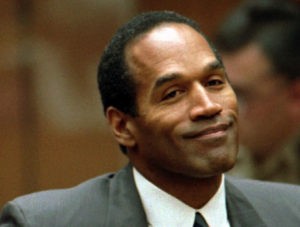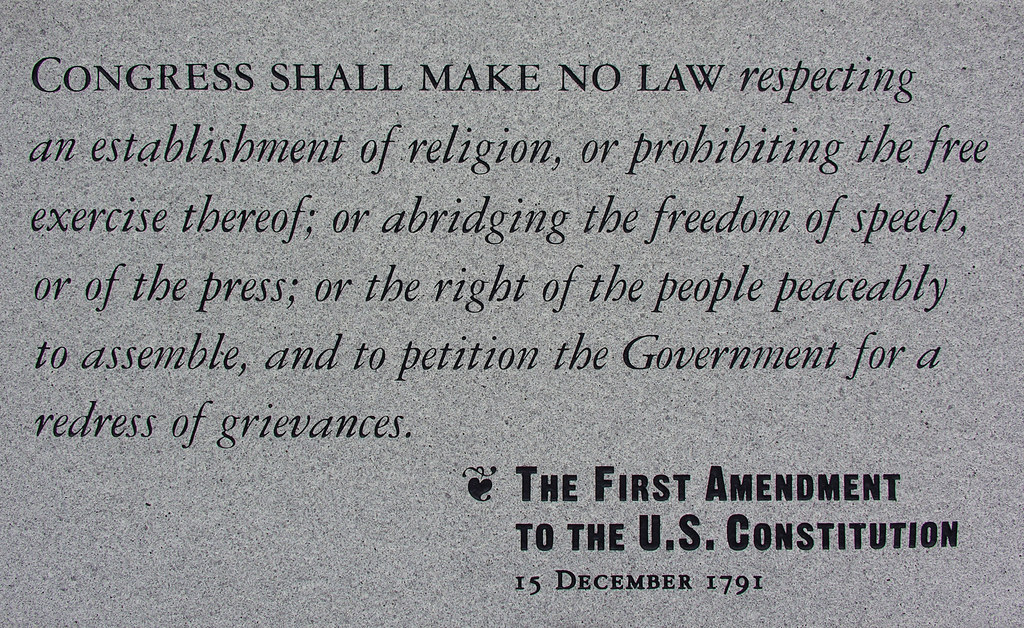The news media always had a love-hate relationship with the American public, its corporations, and its politicians. At times, freedom of the press seems to tilt one way and not the other, appearing bias. This is nothing new in the American media and even more common to the public who witnesses these shifts often. However, with the onslaught of social media during the better part of 20 years, freedom of the press has taken on an overall negative light.
Through a quick tutorial of the press’ origins, a few landmark court cases that solidified the importance of a free press, and why the press is just as paramount now as it always has been, you will see why the American media is here to stay—and for good reasons. Continue reading to learn that while the press seems to slant in a biased manner, the press exists solely to represent the American public and to benefit everyone.
Sir William Blackstone and the American Free Press
Who would have thought a Brit lawyer would have sparked such a conversation over here in America?
For you to have a more clear understanding of how free press works in the United States, we should discuss the man who was critical of his own native legal system, Sir William Blackstone of England.
Why was Blackstone important?
He developed a 4-volume critique called: “Commentaries on the Laws of England.” These writings were popular for many reasons, most notably that they were written in such language understandable to non-lawyers. The majority of policies and general dialect used in the production of legal proceedings (event to this day in America) use language not routinely used by the average citizen.
This makes it extremely hard for people to comprehend, making it more difficult for citizens to know and defend their rights. As a result, governed people may not express themselves as freely as they can. They may have opportunities stripped from them because they cannot understand the complex language.
When the framers of the United States Constitution began their adventure to make the best acting legal document on the planet, they used what Blackstone had critiqued about his own country. One of the many things was how a country allows freedom of the press to report to its people.
A major exclusion from the governments’ power was prior restraint. Prior restraint means that if the United States is to have a free press, then all information must be allowed even if the government knows the information before it has been published might cause trouble. Blackstone was against prior restraint. He viewed it as a major obstacle that could allow too much power in the government’s hands that would lead to the corruption of its legislators, eventually causing chaos amongst a country’s people.
Sir William Blackstone further believed that the rights of individuals to act as the press should not be infringed, suppressed, or threatened by its government. In many cases, especially around election time, the press investigates those running for office. The media has the freedom to dig up anything and everything about a potential official.
This freedom to dig up your dirty secrets and inform the entire world gives the press a bad name. But, can you imagine if the press wasn’t there to expose people? What would stop legislators from corruption? What type of politicians might the people unknowingly elect?
In the end, Sir William Blackstone was ahead of his time. He ushered in a new way of thinking. He knew the importance of the press, even if it wasn’t as massive in its various ways back then (television, social media, etc.). Understanding the importance of balance concerning a government and its people was fundamental to Blackstone. And thankfully, James Madison and the others who designed The Bill of Rights new that, too.
“The liberty of the press is essential to the security of the state”—John Adams
Important Court Cases
The best way to know why freedom of the press is vital to the American infrastructure is to learn from some of the most important landmark cases.
1. The New York Times Co. vs. United States (1971)
Just 200 years early, Sir William Blackstone made his opinion known that he did not endorse a country’s government to apply prior restraint (see above). This shows a government’s abuse of power—and that is what freedom of the press directly stands in contrast with.
This case is better known by its nickname, “The Pentagon Papers.” America’s heavy and highly disputed right to involve itself in the Vietnam War was a hot topic all throughout the 1960s. A secret investigation spearheaded by Robert McNamara, the secretary of defense in 1971, gathered any and all info it could.
Although only a dozen copies of the lengthy document were produced, a project whistleblower provided reporters for The New York Times with this information.
President Richard Nixon attempted to stunt the publication of the papers in The Times by immediately obtaining a restraining order. The Times fired back. They went to the Supreme Court. And on June 30, 1971, the Supreme Court found in favor of The New York Times 6-3. Nixon’s claim that the publication of “The Pentagon Papers” allowed for a breach of national security fell on mostly deaf ears.
So, what do you think?
Should the free press have access to those government files legally? Do you think the government was wrong to collect secret data about the Vietnam War in the first place? Or do you think the American press should not have published “The Pentagon Papers” because it was none of their business?
2. Chandler vs. Florida (1981)
 Does having cameras in the courtroom violate the privacy of those on trial and does it sway the defendant’s right to a fair trial?
Does having cameras in the courtroom violate the privacy of those on trial and does it sway the defendant’s right to a fair trial?
Cameras in the courtroom are very commonplace now, but just several decades ago they were not. Two Miami cops, Noel Chandler and Robert Granger, were on trial for their alleged involvement of robbing private property. Because of their profession and the nature of the crimes, the media took major notice and were allowed cameras in the courtroom to televise the trial.
Of course, the two police officers objected. They claimed that the presence of cameras in the courtroom infringed on their right to due process of the law by promoting bias against them in the form of a potentially slanted jury. Chandler and Granger were convicted. They immediately appealed the ruling and were still found guilty by the Supreme Court, 8-0. The Supreme Court justices found that the jurors were not in any threat to have their decisions swayed.
From this point forward, it has become routine for courtrooms to allow the press to cover cases. (The O.J. Simpson trial was highly publicized in the media from having allowed the press use cameras in the courtroom.)
Do you think cameras in the courtroom sway jurors? Does the presence of the press help or hurt a court case?
3. Edward Snowden
Probably the most recent example of what freedom of the press may (or may not) constitute was that of Snowden’s whistleblower-revelations. Working as a tech guru for the Central Intelligence Agency (CIA), his career made him aware of many unknown surveillance issues of America.
Snowden’s findings led him to reveal that the National Security Agency (NSA), in partnership with various other departments and tech companies throughout the world, was secretly spying on people all over the world. They were doing this through multiple means, such as tapping phone lines and tracking computer data.
Since the leaks, Snowden has been a pariah. The United States revoked his passport. He attempted to make new residences in China (and finally landed asylum in Russia). Snowden will likely live in exile for the rest of his life for violating the United States Espionage Act of 1917.
However, the argument arises if Snowden broke the law by revealing the NSA’s secret agenda. Some people call him a good man for showing the people of the world they were being tracked. Others have stamped Snowden as unpatriotic for betraying the American government’s goodwill to protect its country. What do you think?
“Our nation’s defense depends in part on the fidelity of those entrusted with our nation’s secrets. If any individual who objects to government policy can take it into their own hands to publicly disclose classified information, then we will not be able to keep our people safe, or conduct foreign policy.”—Pres. Barack Obama
As it currently stands, Edward Snowden’s charges are unauthorized communication of national defense information, willful communication of classified intelligence with an unauthorized person, and theft of government property.
A free press is monumental to the ongoing stability of America. While the press may seem problematic on the surface, the free press’ intentions lie in its purpose. Without the free press, what or who would stop corruption that average citizens cannot investigate?
For a democratic society to thrive, freedom of the press is necessary.
What do you think? Is free press a pro or a con? Or is it both?
And if you want to amplify the suspense in your short story or your novel, you can purchase my eBook here.
~M

